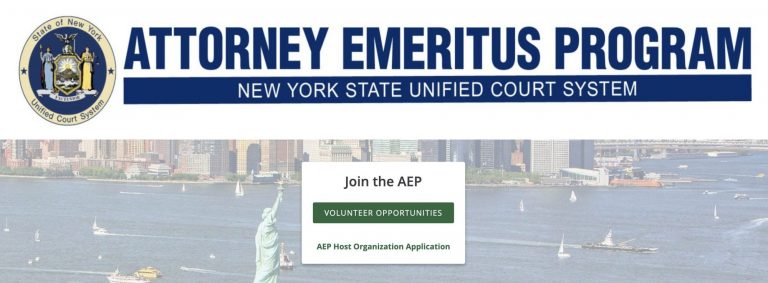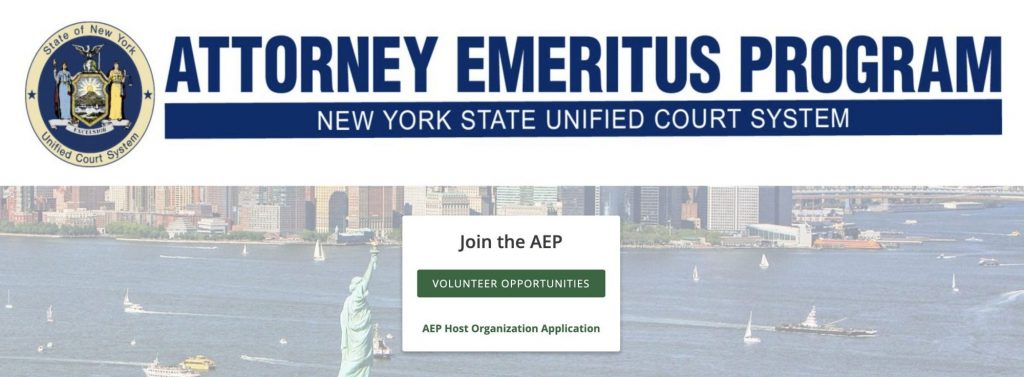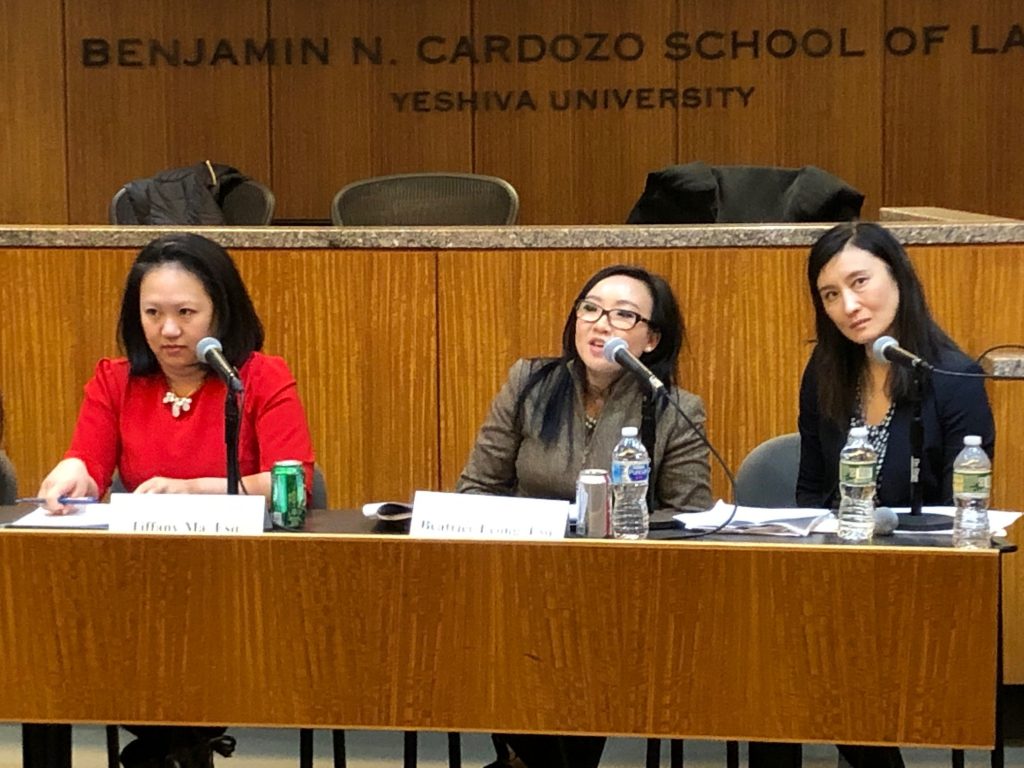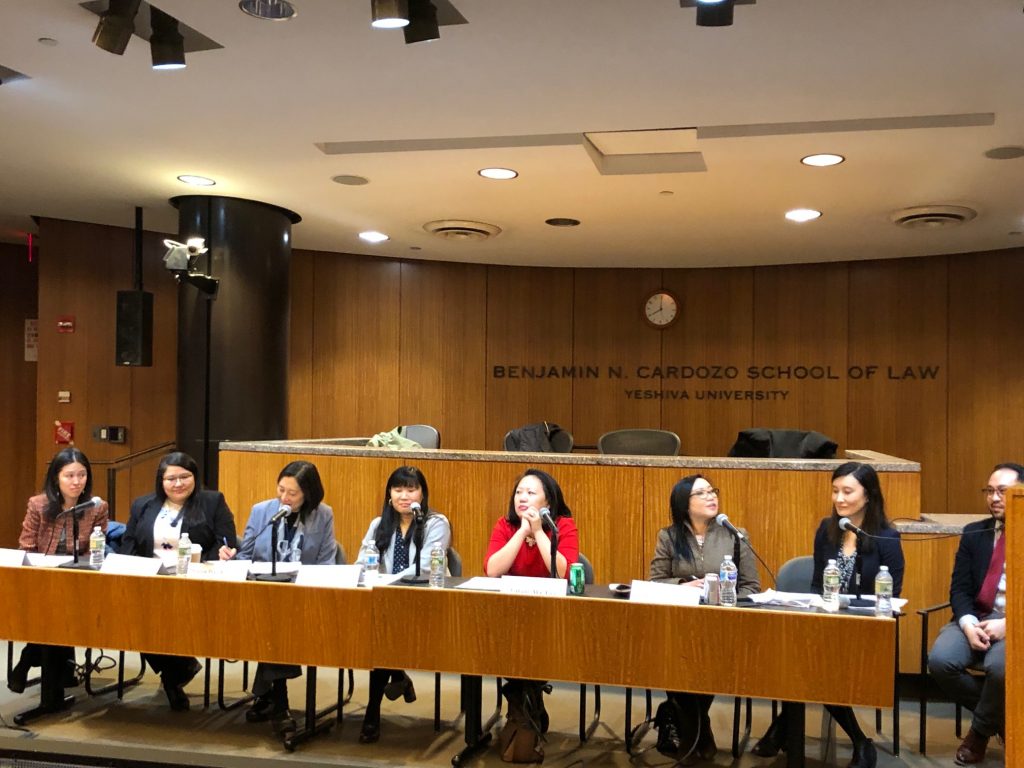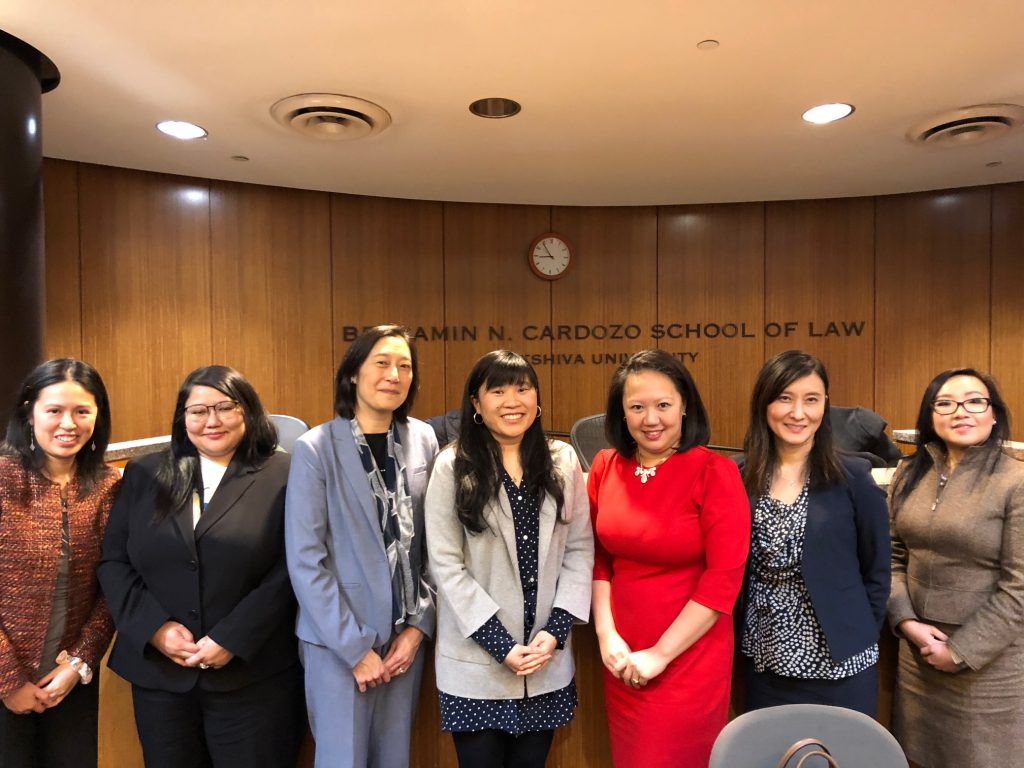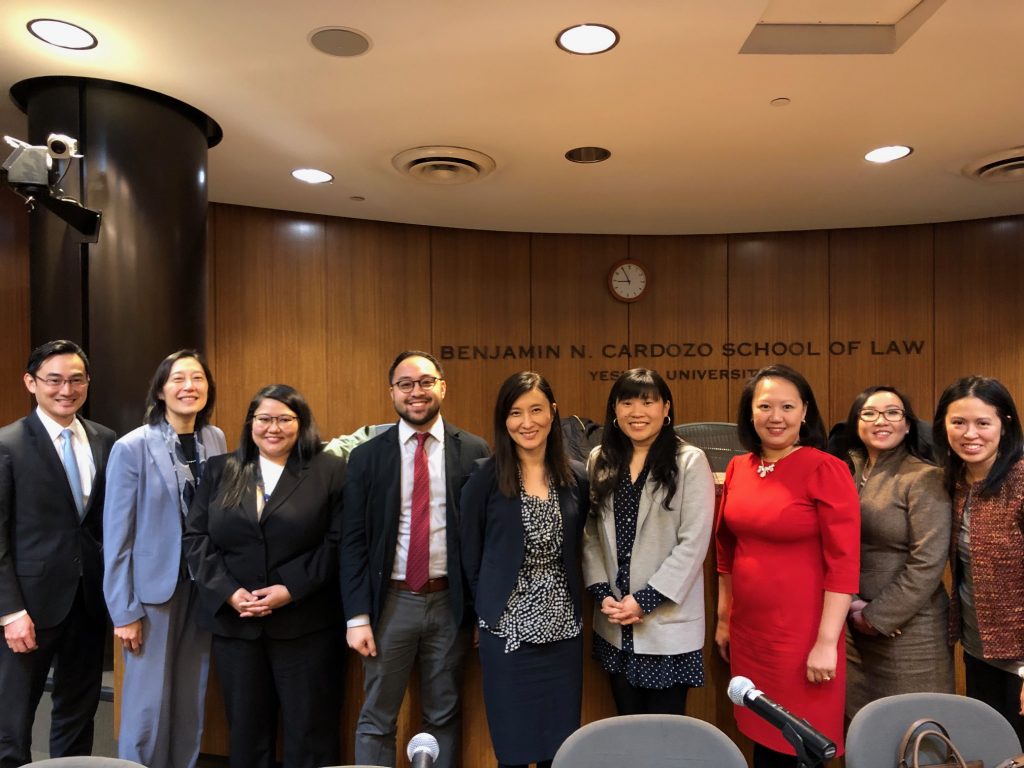NEW YORK – March 5, 2020 – On the heels of its success in Manhattan and Brooklyn, the Asian American Bar Association of New York (“AABANY”) is getting ready to expand its Pro Bono Legal Clinic to Queens.
According to the 2010 Census, of the over one million people identified as Asian American in New York City, nearly half live in Queens. Located in the heart of Flushing, the Queens Clinic will be available every third week of the month with a specific focus each month on housing, immigration, elder law, or family and matrimonial law. Interpreters in Chinese (including Mandarin, Cantonese, Taiwanese), Korean, Japanese, and other languages will be available during the one-on-one consultation with a volunteer attorney. Karen Lin will be volunteering her time to serve as Coordinator of the Queens Clinic.
The Clinic will be held in collaboration with New York State Committeewoman Sandra Ung, a longtime resident of Queens and leading community advocate. Ms. Ung stated: “Having a free legal clinic in Queens, where there will be translators, gives an opportunity for those who simply do not know where to turn when encountering a legal problem, a place where their concerns can be heard. This Pro Bono Legal Clinic in Queens is the first step in helping our community better understand their legal rights. Thank you to AABANY for this partnership and making this clinic available to our Flushing community.”
“As members of the legal profession, our members have achieved their career goals through the struggles of their immigrant parents and grandparents,” states AABANY President Brian Song. “Now it’s time to give back. Many people in our neighborhoods do not have access to reliable information and assistance about legal processes and available legal resources. We can provide assistance in a culturally and linguistically appropriate manner, so that the community understands their rights and remedies. Thank you to our committed volunteers.”
AABANY’s Pro Bono Legal Clinic opened in 2015 to serve members of the Asian Pacific American community who have limited English proficiency (“LEP”) so that they can have meaningful access to justice. Mobilizing the skills and experience of AABANY’s diverse membership, the Pro Bono and Community Service Committee has spearheaded the Clinic’s effort in helping nearly 2,000 LEP individuals in the vast yet underserved Asian American community in New York through its Clinics in Manhattan’s Chinatown and Brooklyn’s Bay Ridge neighborhoods. The Manhattan Clinic takes place on the second Wednesday of each month at the Community Room, 33 Bowery Street. The Brooklyn Clinic takes place on the fourth Thursday of every other month at A+ Academy, 6802 8th Avenue. (If a community member is interested in attending these Clinics, please contact judy.lee@aabany.org to double-check their dates and for any additional updates.)
The New York State Bar Association recently awarded the Pro Bono Legal Clinic with its prestigious New York State Bar Association Bar Leaders Innovation Award, in recognition of the impactful work done to provide legal assistance, community education programs, and outreach. AABANY’s theme for its upcoming fiscal year, “Stronger Together: Unity in Diversity,” is especially fitting as the Pro Bono Clinic expands to Queens, the most ethnically and diverse county in the United States, with 138 languages spoken throughout the borough.
The first Queens Clinic will be held on March 17 at the office of the New York State Committeewoman located at 135-15 40th Road, Flushing, New York 11354, on the topic of Housing Law. Subsequent Clinics will be held on the third Tuesday of each month, and the subsequent clinics already scheduled are on April 15 (Immigration Law); May 20 (Elder Law and Public Benefits); and June 17, 2020 (Family, Matrimonial, and Education Law). Community members seeking legal assistance must call to make an appointment at (347) 391-6463 (English and Chinese speakers), (516) 690-7724 (Korean language speakers), or (845) 450-0726 (Japanese language speakers). Appointments will be made based on availability. Please note that walk-ins will not be permitted at the Queens Clinic.
For more information, please contact Yang Chen, AABANY Executive Director, at (646) 653-2168, or direct any inquiries to main@aabany.org.
The Asian American Bar Association of New York is a professional membership organization of attorneys concerned with issues affecting the Asian Pacific American community. Incorporated in 1989, AABANY seeks not only to encourage the professional growth of its members but also to advocate for the Asian Pacific American community as a whole. AABANY is a New York regional affiliate of the National Asian Pacific American Bar Association (NAPABA).
###
Additional information about AABANY is available at www.aabany.org
Follow our blog at www.blog.aabany.org
Follow us on Twitter at www.twitter.com/aabany
Find us on Facebook at www.facebook.com/aabany
